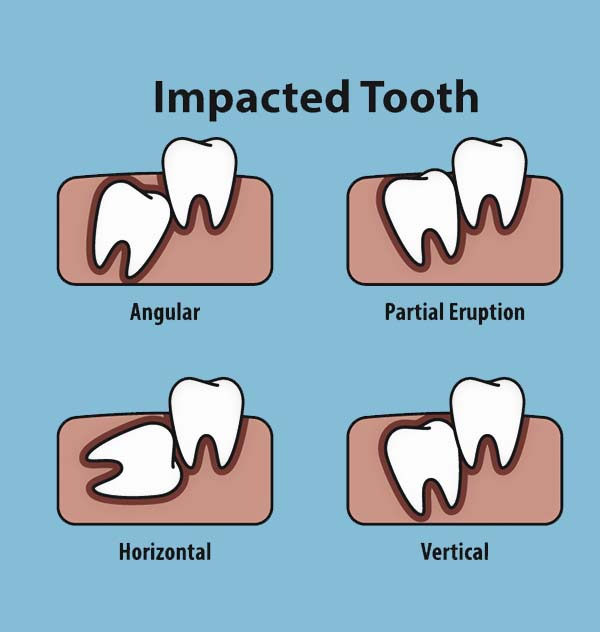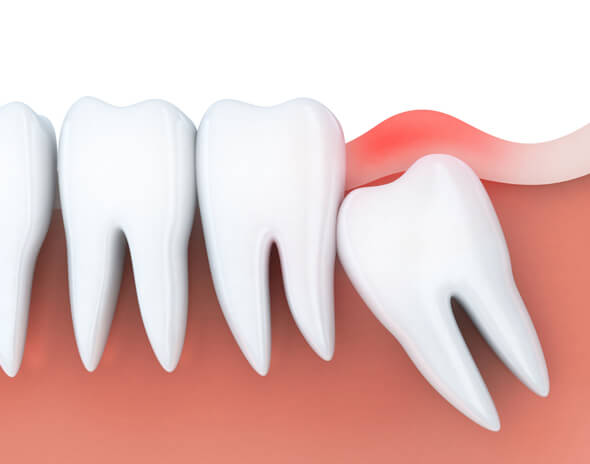Checking Out Various Sedation Options for a Comfortable Knowledge Teeth Removal Experience

Neighborhood Anesthetic
Neighborhood anesthesia is a frequently made use of technique for numbing certain areas of the mouth throughout wisdom teeth removal treatments. By providing a neighborhood anesthetic, such as lidocaine, a dental professional can make certain that the person stays pain-free and comfortable throughout the extraction process.
One of the main advantages of local anesthesia is its targeted numbing impact, which implies that only the details area being treated is affected. This local strategy minimizes the risk of systemic adverse effects and allows for a quicker recuperation post-procedure. wisdom teeth removal aspendale. Additionally, local anesthetic is thought about to be a secure and routine practice in dentistry, with marginal risks entailed when carried out by a trained specialist
Laughing Gas

Furthermore, laughing gas is understood for its quick healing time. When the mask is eliminated, the impacts of the gas subside promptly, permitting patients to resume their normal activities without lingering sedative results. This makes laughing gas a convenient choice for those who require to drive themselves home after the oral consultation. Nitrous oxide is suitable for people of all ages, making it a flexible sedation option for knowledge teeth extractions and various other dental procedures.
Oral Sedation

Unlike intravenous sedation, oral sedation does not call for injections or needles, making it a more comfy option for people with an anxiety of needles. In addition, dental sedation is thought about risk-free and effective when administered by skilled oral professionals.
IV Sedation
Provided intravenously by experienced doctor, IV sedation is an effective approach used to generate a regulated state of deep relaxation and unfamiliarity throughout dental procedures. Unlike dental sedation, which can anchor be unpredictable in its impacts, IV sedation permits for precise control over the level of sedation, making it an ideal choice for complicated treatments like wisdom teeth extractions.
During IV sedation, a sedative medicine is delivered straight right into the blood stream through a capillary, permitting it to take effect swiftly and efficiently. This method makes sure that the patient remains uninformed and comfortable of the procedure while still preserving crucial features such as breathing and heart price.
Among the main benefits of IV sedation is its capability to supply a much deeper degree of sedation compared to other methods, making it especially appropriate for individuals with high levels of stress and anxiety or those going through substantial oral job. Furthermore, the impacts of IV sedation normally disappear progressively after the procedure, decreasing the probability of grogginess or sticking around side effects. On the whole, IV sedation supplies a risk-free and effective alternative for making sure a comfortable and hassle-free experience throughout wisdom teeth extraction.
General Anesthesia
Having reviewed the benefits of IV sedation for wisdom teeth extraction, the application of basic anesthesia offers a different choice for patients requiring a deeper degree of unfamiliarity throughout oral treatments. General anesthesia induces a controlled state of unconsciousness, ensuring the client feels no pain or discomfort throughout the removal process. This approach is particularly beneficial for people with severe dental anxiety, complicated surgical demands, or those going through multiple extractions at the same time.
General anesthetic is provided by a skilled anesthesiologist who carefully monitors the person's vital indicators throughout the treatment. It includes using intravenous medicines or inhaled gases to generate a state of unfamiliarity. While under basic anesthetic, the individual will not understand the surgery, experience any kind of pain, or have any type of recollection of the treatment afterward.
Although basic anesthetic is risk-free when provided by certified professionals, it brings a slightly greater risk compared to various other sedation choices. wisdom teeth removal see this site aspendale. Clients taking into consideration general anesthetic for wisdom teeth removal should discuss the prospective risks and advantages with their dental practitioner or dental doctor to make a notified decision based upon their specific requirements and clinical background
Conclusion
Finally, various sedation see page alternatives are offered to make certain a comfy wisdom teeth removal experience. Local anesthetic is generally used for numbing the certain area, while nitrous oxide supplies leisure and discomfort alleviation. Oral sedation and IV sedation offer much deeper degrees of leisure, relying on the person's demands. General anesthetic can be made use of for much more intricate instances. It is essential to seek advice from your dental professional or oral doctor to figure out one of the most ideal sedation choice for your treatment.
Nitrous oxide is appropriate for people of all ages, making it a functional sedation option for wisdom teeth extractions and various other oral procedures.
Unlike intravenous sedation, dental sedation does not require needles or injections, making it an extra comfy option for people with a concern of needles.One of the key advantages of IV sedation is its capability to give a deeper degree of sedation compared to various other techniques, making it especially appropriate for clients with high levels of anxiety or those going through considerable oral job.Having discussed the advantages of IV sedation for knowledge teeth removal, the usage of general anesthetic gives a different option for patients needing a much deeper degree of unfamiliarity during oral treatments. Oral sedation and IV sedation deal much deeper degrees of relaxation, depending on the person's requirements.